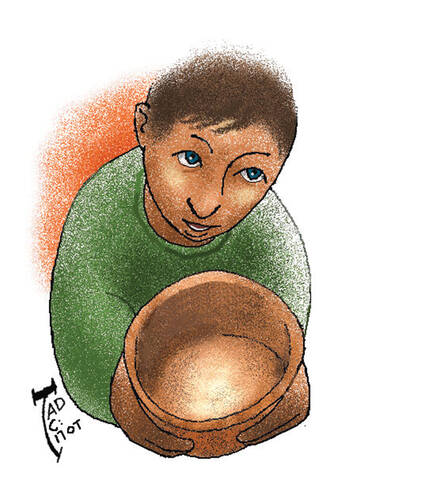Asking Always
The Catechism of the Catholic Church outlines five different forms of prayer: prayer of blessing and adoration, prayer of petition, prayer of thanksgiving, prayer of praise and prayer of intercession (No. 2625-43). These forms of prayer, in their biblical exemplars and elsewhere, often intermingle more than one form of prayer, so that one sees together, for example, prayer of praise and petition, thanksgiving and blessing, intercession and petition. And this is what we find in Luke’s Gospel. Chapter 11 offers forms of petitionary prayer, but there are also aspects of intercession, praise and thanksgiving.
Prior to the Lord’s Prayer in Luke, Jesus himself is found in prayer, which leads his disciples to ask that he “teach us to pray, as John taught his disciples.” This is the first request made of Jesus, who answers by offering them the Lord’s Prayer. Luke’s version is more concise than that found in the Sermon on the Mount in Matthew, but it maintains the same reverence for God’s holiness and offers petitions for the establishment of God’s kingdom, our daily needs and the forgiveness of our sins, as well as our forgiveness of others and the ability to withstand the trials of evil. This petitionary prayer is also a prayer of intercession, since “intercession is a prayer of petition which leads us to pray as Jesus did” (No. 2634).
That Jesus was in prayer is the first lesson, which the disciples took to heart when they asked him to teach them. The second lesson is the Lord’s Prayer itself, which focuses on the petitioner’s need, as we see also in Old Testament prayers, to be in right relationship with God. In prayer, God comes first. We need to approach God in humility, which is encapsulated by our appeal for forgiveness so that we can approach God’s holiness. Then we pray for God’s kingdom to come in glory in order to transform us. “There is a hierarchy in these petitions: we pray first for the Kingdom, then for what is necessary to welcome it and cooperate with its coming” (No. 2632).
But as Jesus’ parable of the importunate friend, which follows the Lord’s Prayer, reminds us, humility in prayer need not lead us to hold back with reserved and measured requests. The parable encourages us; if we have something to ask of God, we need to ask boldly. “The importunate friend,” as the catechism calls him, is persistent, unrelenting, annoying, demanding, forceful, overeager and harassing, as a quick check of a thesaurus suggests. Think of all these synonyms for importunate in the context of prayer! I will offer my own choice of description: the brazen friend.
The prayer of the brazen friend is a prayer of petition, and it is indeed unrelenting and annoying. This is what Jesus’ parable proposes as the sort of prayer we ought to offer: ceaseless, demanding, forceful. The man in the parable who responds to his annoying friend does so not out of friendship but “because of his persistence he will get up and give him whatever he needs.” Given grudgingly, it is still the response that the annoying friend seeks.
We are not friends who annoy God, but persistence in prayer must become our practice. Persistence in prayer indicates that we know to petition God without ceasing because only God can meet our deepest needs. What Jesus describes as “evil” parents, in contrast to God, know how to give their child good gifts. How much more does God, who is goodness, desire to give us what we need? And what we need is more than earthly gifts. The one who persists in prayer knows “how much more will the heavenly Father give the Holy Spirit to those who ask him!” The Holy Spirit provides all spiritual gifts, each attuned to our and the church’s needs. God wants to hear from us, for when we are asking always for all the things we need from God, it means we desire the gift of God’s goodness above all else.
This article also appeared in print, under the headline “Asking Always,” in the July 18-25, 2016, issue.








